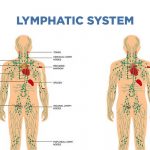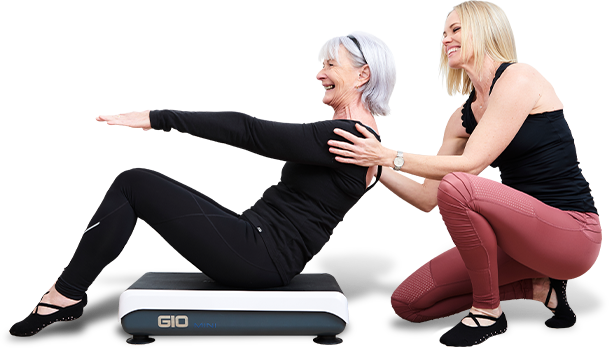Which Vitamins Should You Have on Hand for Vein Health?
Though it may not appear to be the case, what you eat has an impact on your vein health. In fact, it has a significant impact on it. Food nutrients help to maintain your arteries and veins robust in the long run, resulting in long-term vein health. That is why it is critical that you choose what vitamins are good for blood circulation you require to maintain your veins happy and healthy.
However, eating well-balanced meals three times a day, every day can be tough at times. We’ve all had those days when we order a pizza to go, reach for a tub of ice cream, and drink a little too much wine. And, as long as it doesn’t become a habit, there’s nothing wrong with treating yourself every now and then.
It is critical that you acquire what vitamins are good for blood circulation to guarantee that those days and other days when you are simply too busy to eat a well-rounded meal do not negatively impact your vein health. There are several leg circulation vitamins that you should include in your daily routine, whether you get them through food or supplements.
Omega-3 Fatty Acids
Omega-3 fatty acids are one of the greatest leg circulation vitamins for circulation. These important lipids, which few Americans consume enough of, address numerous key components of blood flow.
Omega-3 fatty acids have been demonstrated to:
- Inflammation is reduced, which protects the endothelium and maintains blood vessels healthy.
- Platelets are discouraged from sticking together and forming clots, which helps to maintain your blood thin, fluid, and free flowing.
- Contribute to artery dilatation and expansion for improved blood flow and decreased blood pressure.
- Assist in the stabilization of arterial plaque.
A meta-analysis of studies on the impact of omega-3 fatty acids in patients with cardiovascular risk factors was conducted by researchers from the University of New Mexico. They discovered that omega-3 fatty acids enhanced flow-mediated dilation (FMD), a test that measures arterial dilation and endothelial function, in 16 of 17 clinical trials involving people who were overweight, smoked, and/or had high blood lipids or metabolic syndrome.
Vitamin K2
Vitamin K is often known as the “clotting vitamin.” However, one type of this fat-soluble vitamin, vitamin K2, offers outstanding circulatory effects. It treats arterial calcification, or the accumulation of calcium deposits in the arteries.
This is significant because calcium deposits thicken and stiffen the arteries, restricting blood flow. Vitamin K2 stimulates proteins that bind to calcium and transport it to the bones from soft tissues such as the arteries.
This keeps your blood vessels flexible and open, allowing for greater circulation. A high intake of vitamin K2 has been related not only to reduced arterial calcification but also to a lower risk of death from cardiovascular disease. Furthermore, vitamin K2 has been shown to improve brain health and blood sugar metabolism.
Vitamin B
As long as you have enough folate, vitamin B6, and vitamin B12, homocysteine is a byproduct of protein breakdown that is quickly transformed into other amino acids. Homocysteine levels can reach hazardous levels if you are low in these B-complex vitamins.
Homocysteine deficiency affects the endothelium and is linked to an increased risk of atherosclerosis, blood clots, coronary heart disease, and other cardiovascular disorders. It is also linked to stroke and dementia.
Because there is a very common genetic variation (MTHFR) that affects folate metabolism in the body, having your homocysteine level evaluated is a smart idea. Extra folate, B6, and B12 may be recommended if it is high. Homocysteine levels should be between 7 and 10 umol/L.
What vitamins are good for veins and blood flow?
Vitamin C
Everyone appreciates vitamin C. It receives the most attention of any vitamin, and for good reason. Vitamin C is not only beneficial to your immune system, but it is also beneficial as a leg circulation vitamins.
How so? First and foremost, it promotes blood circulation and the mending of vein membranes. It also strengthens vein walls and aids in the creation of collagen, which is a necessary protein for your body to function properly.
Vitamin K
Though it does not receive as much attention as the others, it is essential for vein health. Vitamin K works to keep your blood flowing properly on a daily basis, as well as after an injury.
Furthermore, vitamin K helps to strengthen your capillaries (the walls of your blood vessels) and keeps them from breaking or bulging (as they tend to do when your veins have issues). Here’s an interesting fact: The name vitamin K comes from the German word for blood clotting,
Vitamin B
This vitamin family is one of the most crucial for strengthening your blood vessels and, as a result, preventing vein difficulties or at least keeping them at bay if they have already surfaced. Vitamins B6 and B12 are especially crucial for people who have a family history of vein problems and blood clots.
B6 and B12 help to eliminate excess homocysteine, an amino acid that, when too much of it accumulates, can cause blood clotting. When it comes to circulation, B3 is the star. It also helps to lower cholesterol levels in the blood.
Vitamin E
This necessary vitamin aids in the correct flow of blood through your veins. It accomplishes this by preventing your platelets from becoming overly sticky. And why don’t you want your blood platelets to stick together? Because this is what causes blood to adhere to the lining of your blood vessels and form blood clots.
Does vitamin B12 help blood circulation?
In a variety of ways, vitamin B-12 assists your heart, arteries, and complete circulatory system. This nutrient, along with other B vitamins, aids in the production of new red blood cells, which transport oxygen to your tissues and organs, thereby improving circulation. Vitamin B-12 also keeps your arteries malleable and your homocysteine levels low, lowering your risk of heart disease.
Reduces Homocysteine Levels
Because of its influence on an amino acid called homocysteine, vitamin B-12 may help protect your heart. Homocysteine levels remain low when your body receives an adequate supply of vitamin B-12, as well as the B vitamins folate and B-6. According to researchers who published a study in the “Journal of Nutrition” in 2006, those with high homocysteine levels are more likely to have a heart attack.
Better Arterial Health
Although vegetarians have lower LDL and total cholesterol levels than meat eaters, lowering their risk of heart disease, they do not have healthier arteries, according to the authors of a 2011 study published in “Vascular Health and Risk Management.”
When 49 healthy postmenopausal vegetarians were compared to 41 omnivores of the same age, they discovered that the vegetarians had significantly lower brachial artery resistance, or elasticity. The researchers linked the vegetarians’ stiffer arteries to a lack of vitamin B-12, implying that adequate B-12 levels may improve arterial health.
Sources of Healthy Food
Avoid red meat, which is heavy in saturated fat and cholesterol and can cause plaque to form in your arteries, if you want to increase your intake of vitamin B-12 without putting your heart at risk. B-12 is abundant in shellfish, with a plate of steamed clams, mussels, or crab supplying many times the daily intake of 2.4 micrograms.
A meal of turkey, poultry, eggs, or low-fat dairy products also contains vitamin B-12, providing 15 to 40% of your daily requirement. Although vitamin B-12 is only found in animal sources, some cereals are fortified with it. Although it is preferable to obtain nutrients from food, if you are not getting enough vitamin B-12 from your diet, your doctor may advise you to take daily supplements for leg circulation.
How can I improve my blood circulation quickly?
You can lower your risk of having poor circulation by doing any of the following:
- Exercise.
- Maintain an appropriate body weight.
- Don’t smoke. If you do smoke, quit.
- Consume only nutritious foods.
- Take control of your high blood pressure, diabetes, and cholesterol levels.
Sources:
https://www.veinclinics.com/blog/make-sure-have-these-vitamins-to-keep-veins-healthy/
https://www.healthydirections.com/articles/heart-health/best-circulation-supplements?closebox=true
https://www.veinclinics.com/blog/make-sure-have-these-vitamins-to-keep-veins-healthy/#:~:text=Vitamin%20B,and%20B12%20are%20particularly%20important.
https://healthyeating.sfgate.com/b12-protect-heart-arteries-7864.html







